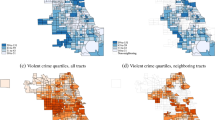Abstract
This paper uses a semiparametric model to analyze the impact of an increase in the real minimum wage on inequality in Colombia between 1995 and 1999 and in Paraguay between 1993 and 2000–2001. Simulations suggest that if the employment effects of the minimum wage increase are ignored, the underlying policies would contribute to reduce earnings inequality in Colombia and would be inequality neutral in Paraguay. By considering the drop in wages of those who lost their jobs, simulations suggest that in both countries the policy in question would increase earnings inequality under some assumptions about the employment elasticity of the minimum wage and the new level of earnings unemployed workers rely upon. While these findings do not mean that minimum wage increases in LDCs (Less Developed Countries) necessarily have adverse distributional affects, they suggest that minimum wage policy should be implemented with care depending on how sensitive employment is to wage increases.
Similar content being viewed by others
References
Addison, J., Blackburn, M.: Minimum wages and poverty. Ind. Labor Relat. Rev. 53(2), 393–409 (1999)
Angel-Urdinola, D., Wodon, Q.: The impact on inequality of raising the minimum wage: gap-narrowing and reranking effects. LABOUR: Review of Labor economics and Industrial Relations 18, 2 (2004)
Brown, C., Gilroy, C., Kohen, A.: The effect of the minimum wage on employment and unemployment. J. Econ. Theory 20, 487–528 (1982)
Card, D., Krueger, A.: Myth and Measurement: The New Economics of the Minimum Wage. Princeton University Press, Princeton, NJ (1995)
Card, C., Ashenfelter, O.: Minimum wages, employment and the distribution of income. Handbook of Labor Economics 3b, chapter 32, (1999)
DiNardo, J., Fortin, N., Lemieux, T.: Labor market institutions and the distribution of wages, 1973–1992: a semi parametric approach. Econometrica 64(5), 1001–1144 (1996)
Fajnzylber, P.: Minimumwage effects throughout the wage distribution: evidence from Brazil’s formal and informal sectors. Working paper, Department of Economics and CEDEPLAR, Universidad Federal de Minas Gerais. Belo Horizonte, Brazil (2001)
Horrigan, W., Mincy, R.: In: Danziger S., Gottschalk, P. (eds.) Uneven Ties. Russell Sage Foundation, New York (1993)
Kristensen, N., Cunningham, W.: Do minimum wages in Latin America and the Caribbean matter? Evidence from 19 countries. Working paper no. 3870, World Bank. Washington, D.C. (2006)
Lee, D.: Wage inequality in the United States during the 1980s: Rising dispersion or falling minimum wage? Q. J. Econ. 114(3), 977–1023 (1999)
Machin, S., Manning, A.: The effects of minimum wages on wage dispersion and employment: evidence from the U.K. Wage Councils. Ind. Labor Relat. Rev. 47(2), 319–329 (1994)
Maloney, W., Nuñez, J.: Measuring the impact of minimum wages. Evidence from Latin America. Working paper 9800. National Bureau of Economic Research. Cambridge, MA (2003)
Meyer, R., Wise, D.: Discontinuous distributions and missing persons: the minimum wage and unemployed youth. Econometrica 51(6), 1677–1698 (1983)
Mincy, R.: Raising the minimum wage: effects on family poverty. Mon. Labor Rev. 113(7), 18–25 (1991)
Neumark, D., Schweitzer, M., Washer, W.: The effects of minimum wages throughout the wage distribution. Working paper 7519, National Bureau of Economic Research. Cambridge, MA (2000)
Silverman, B.: Density Estimation for Statistics and Data Analysis. Chapman and Hall, London (1986)
Author information
Authors and Affiliations
Corresponding author
Additional information
The author acknowledges support from grant P074335 from the Research Support Budget at the World Bank, as well as comments from Dr. Quentin Wodon and Edward Creppy at the World Bank, Professors Phil Cross and Arik Levinson at Georgetown University, participants to the 2002 Mid Western Economics Association Meetings in Chicago, participants to the DECRG Poverty seminar at the World Bank, and two anonymous referees. An earlier version of this paper was prepared as part of the author’s doctoral dissertation at Georgetown University. The views expressed here are those of the author and need not reflect those of the World Bank, its Executive Directors or the countries they represent.
An erratum to this article can be found at http://dx.doi.org/10.1007/s10888-008-9079-y
Rights and permissions
About this article
Cite this article
Angel-Urdinola, D.F. Can a minimum wage increase have an adverse impact on inequality? Evidence from two Latin American economies. J Econ Inequal 6, 57–71 (2008). https://doi.org/10.1007/s10888-006-9049-1
Received:
Accepted:
Published:
Issue Date:
DOI: https://doi.org/10.1007/s10888-006-9049-1



